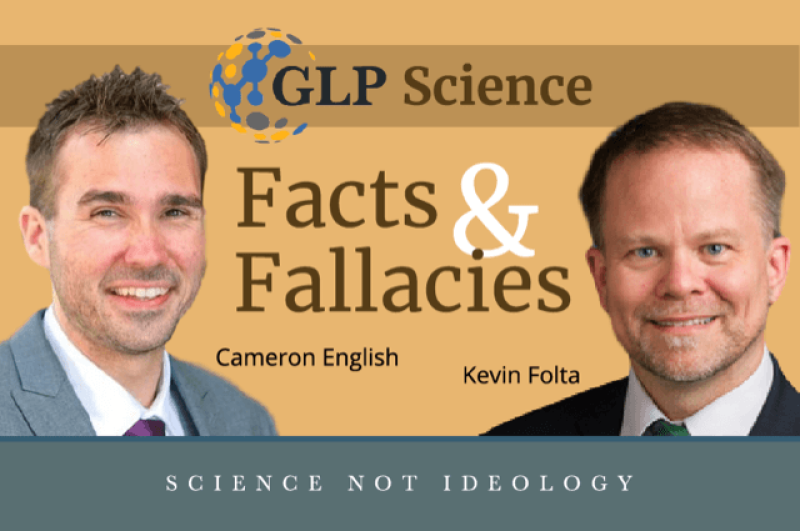Podcast:
Podcast: Play in new window | Download
Subscribe: RSS
Video:
Join host Dr. Liza Dunn and GLP contributor Cameron English on episode 227 of Science Facts and Fallacies as they break down these latest news stories:
As synthetic alternatives to animal foods become more widely available, some proponents say the world will begin to look at meat eating as akin to universally deplored behaviors like human sacrifice. Although novel products like lab-grown burgers have some promise, many questions remain about their suitability to completely replace animals as a source of nutrients. For instance, is it truly sustainable to mass produce these products as part of an effort to end animal agriculture? And more fundamentally, is it actually unethical to eat animals? If so, why?
Another massive evidence review conducted by experts in Europe has reaffirmed that glyphosate poses minimal risk to human health and can be safely used by farmers. The report was followed by leaked news that the European Union will reauthorize the weedkiller for another 15 years, signaling its rejection of activist claims that glyphosate poses a cancer risk to humans. How much longer will the world continue to fight over the settled science behind this herbicide?
In a campaign that bears a striking resemblance to the crusade against glyphosate, tort lawyers and activist groups now assert that the artificial sweetener aspartame is carcinogenic. As with their earlier claims about the weedkiller, their case against aspartame rests on a report from the controversial International Agency for Research on Cancer (IARC). Is this widely studied sweetener a grave concern to public health, as some organic food proponents claim? Let’s take a closer look at the evidence.
Dr. Liza Dunn is a medical toxicologist and the medical affairs lead at Bayer Crop Science. Follow her on Twitter @DrLizaMD
Cameron J. English is the director of bio-sciences at the American Council on Science and Health. Visit his website and follow him on Twitter @camjenglish































